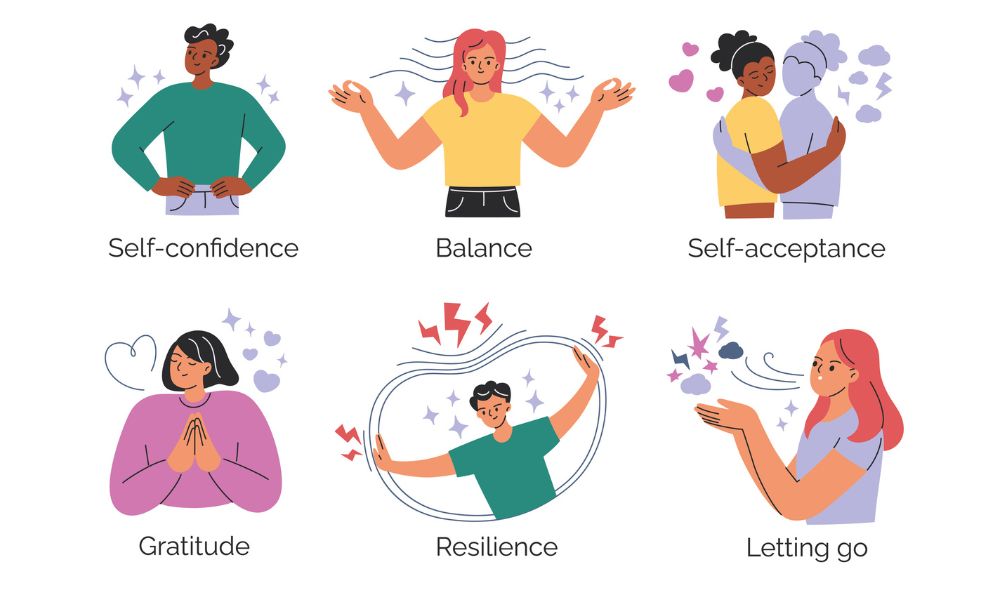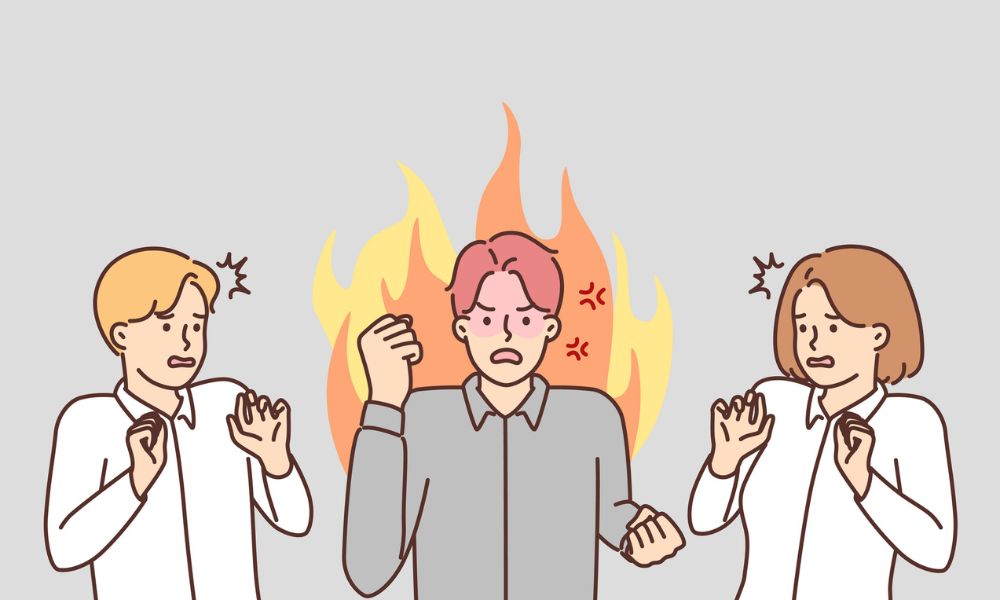Anger is a natural emotion, but when it arises in our relationships, it can be tricky to navigate. We all face moments where frustration might lead us to react in ways that are harmful to those we care about. The key to addressing anger in relationships lies in communication and understanding, allowing us to express our feelings without causing hurt to our loved ones.

Recognising that anger does not have to damage our connections is vital. By adjusting how we communicate, we create a space where both partners feel safe to express themselves. We can learn techniques to regulate our emotions and develop behavioural changes that foster a more supportive environment.
As we explore strategies to manage our anger, we can also enhance our emotional intimacy with our partners. This journey allows us to transform conflict into opportunities for growth, helping us maintain strong relationships even in challenging times.
Key Takeaways
- Effective communication is crucial for resolving anger.
- Emotional regulation techniques can help prevent conflicts.
- Building a supportive environment fosters healthier relationships.
Understanding Anger in Relationships

Anger is a complex emotion that can significantly affect our relationships. It is essential to grasp its dynamics, common triggers, and psychological impacts to better navigate our interactions. By understanding anger, we can address it effectively without harming those we love.
Defining Anger and Its Dynamics
Anger is a natural response to perceived threats or frustrations. It often arises when we feel that our needs or boundaries have been violated. This emotion serves a purpose, as it alerts us to issues that may require attention.
In relationships, anger can manifest in various ways, from subtle irritation to explosive outbursts. Understanding these dynamics is crucial. We must recognise that our anger may not solely reflect our current situation but can also stem from past experiences.
Moreover, how we express our anger can influence our connection with our partner. Healthy communication about feelings can turn anger into a constructive dialogue, fostering intimacy and understanding.
Common Triggers of Anger
Many triggers can provoke anger in relationships. Some common ones include:
- Miscommunication: A lack of clarity can lead to misunderstandings.
- Unmet Expectations: When our expectations are not met, we often feel let down and angry.
- Feeling Overwhelmed: Stress and external pressures can heighten our emotions.
By identifying these triggers, we can develop strategies to cope. For instance, taking a moment to breathe or stepping away from the situation can help us respond rather than react. Recognising patterns in our anger allows us to communicate our feelings better and avoid escalating conflict.
Psychological Impact of Anger in Intimate Bonds
Anger can have significant psychological effects on our relationships. When not addressed, it may lead to resentment, distancing, and even breakdowns in communication. These outcomes can create a toxic environment that affects both partners.
We need to understand that anger often signals unmet needs. When we ignore these signals, they may manifest in destructive behaviours.
Moreover, habitual anger can erode trust and emotional closeness. By addressing anger constructively, we can deepen our emotional connection and enhance our relationship. Compassion and openness to discussions around anger can lead to healing and growth, making our bonds stronger.
Communication Techniques

Effective communication is essential when addressing anger in relationships. By honing our skills, we can express our feelings respectfully and thoughtfully. Let’s explore some important techniques that can help us communicate better.
Active Listening Skills
Active listening is crucial for understanding our partner’s perspective. It involves more than just hearing their words; we need to pay attention to their feelings and body language.
To practise active listening, we can:
- Avoid interrupting: Let them finish their thoughts without interruptions.
- Ask clarifying questions: This shows that we are engaged and care about what they are saying.
- Reflect back: Paraphrasing their points helps confirm that we understand.
By applying these skills, we create a space where both partners feel valued and respected.
Expressing Feelings Without Accusation
When we express our feelings, it is vital to do so without being accusatory. Using "I" statements can help us communicate our emotions without placing blame. For example:
- Instead of saying, "You never listen to me," we can say, "I feel unheard when we discuss this topic."
This approach helps focus on our feelings rather than attacking our partner. Additionally, we should aim to be specific about what bothers us. This clarity makes it easier for our partner to understand and respond appropriately.
The Importance of Timing in Difficult Conversations
Timing plays a significant role in how effectively we communicate our feelings. We should choose moments that are calm and appropriate for serious discussions. Avoid bringing up sensitive topics during stressful situations or when emotions are running high.
It’s also helpful to check in with our partner before starting an important conversation. We can ask if they have time to talk and if they are in a good mood. This approach shows respect for their feelings and allows for a more constructive dialogue.
By focusing on timing, we can increase the chances of a positive outcome in our discussions.
Emotion Regulation Strategies

Managing anger in relationships requires practical skills that help us control our emotions and respond appropriately. We can improve our ability to handle anger through self-awareness, stress management, and cognitive techniques.
Self-awareness and Anger Identification
Self-awareness is the first step in managing anger. We need to recognise our emotional triggers and understand how we react to them. This practice allows us to notice the physical signs of anger, such as increased heart rate or muscle tension.
Keeping a journal can help with this process. Writing down our feelings in specific situations allows us to see patterns. By reviewing what makes us angry, we can prepare ourselves for those moments and develop healthier reactions.
Stress Management and Relaxation Techniques
Stress management plays a key role in regulating emotions. High stress often leads to heightened anger responses. We can use techniques such as deep breathing, meditation, or progressive muscle relaxation to calm ourselves in stressful situations.
Taking breaks during conflicts can also be very effective. Stepping away for a few minutes can give us the time needed to cool down and think clearly. Regular physical activity, such as walking or yoga, can help us lower stress levels and improve our mood.
Cognitive Restructuring for Negative Thoughts
Cognitive restructuring helps us challenge and change negative thoughts that fuel our anger. When we have angry thoughts, it's important to question their validity.
We can use “What if?” scenarios to assess our beliefs. Instead of jumping to conclusions, we might ask ourselves if our thoughts are based on facts or assumptions. Practising positive affirmations can also reframe our mindset and reduce anger. This process takes time, but it leads to healthier relationships and responses to anger.
Behavioural Changes and Actions

To effectively manage anger in our relationships, we can implement specific behavioural changes and actions. These strategies help us communicate better, set appropriate boundaries, and seek support when needed.
Setting Boundaries and Expectations
Setting clear boundaries is crucial in maintaining healthy relationships. We must communicate our needs and limits to those we care about. This helps prevent misunderstandings and reduces chances of frustration.
It is important to specify what behaviours trigger our anger. For example, we can say, "I feel upset when plans change at the last minute." By being upfront, we foster an environment of understanding.
We should also respect the boundaries of others. This mutual respect encourages honesty and reduces conflict. Regularly discussing expectations can help keep our relationships strong.
Constructive Outlets for Anger
Finding healthy ways to express anger is vital. Instead of bottling up feelings, we can use constructive outlets. These outlets help us release tension without harming those around us.
Physical activities, like exercise or sports, allow us to channel anger positively. Engaging in creative pursuits, such as writing or painting, can also serve as emotional releases.
Another effective method is practising relaxation techniques. Deep breathing, meditation, or spending time in nature can help us regain calmness. By using these strategies, we improve our emotional well-being and strengthen our relationships.
Seeking Professional Help When Necessary
Sometimes, we may need additional support to manage anger effectively. Seeking professional help can provide us with the tools and strategies to navigate our feelings. Therapists and counsellors offer guidance that can benefit our relationships.
Therapy provides a safe space to explore our emotions. It helps us understand the root causes of our anger. Additionally, professionals can teach us effective communication skills and coping mechanisms.
If we notice frequent conflicts or find it hard to manage our anger, reaching out for help can be a strong step. It demonstrates our commitment to fostering healthier connections with those we love.
Conflict Resolution Techniques
When we encounter anger in relationships, effective conflict resolution techniques can help us navigate through difficult situations. We can use collaborative problem-solving, focus on forgiveness and reconciliation, and implement strategies to avoid escalation and retaliation. Each technique plays a critical role in maintaining healthy communication and connection.
Collaborative Problem Solving
In collaborative problem solving, we work together to find solutions that satisfy both partners. This approach involves open communication and understanding each other's perspectives.
-
Use “I” Statements: We express our feelings without blaming the other person. For example, we might say, “I feel upset when...” instead of “You make me upset when...”.
-
Listen Actively: We must listen without interrupting. This helps ensure that both sides feel heard and valued.
-
Brainstorm Together: We can suggest solutions and discuss them openly. This allows us to explore options and agree on the best path forward.
Forgiveness and Reconciliation
Forgiveness is essential in resolving conflicts. It allows us to let go of past grievances and restore our relationships.
-
Acknowledge Hurt Feelings: We openly discuss our feelings about what happened. This helps in healing.
-
Express Regret: If we have hurt someone, showing genuine regret can help mend the relationship. A simple “I’m sorry” can go a long way.
-
Commit to Moving Forward: We need to express our desire to improve the relationship. This creates a shared commitment to avoid repeating past mistakes.
Avoiding Escalation and Retaliation
Preventing situations from escalating is vital in managing anger. We can adopt several techniques to keep conflicts from getting out of hand.
-
Take Time Outs: When emotions run high, we can step away for a moment. This pause allows us to regain our composure.
-
Stay Calm: We should strive to remain calm and collected. Deep breathing and focusing on our emotions can help.
-
Avoid Retaliatory Actions: It is essential to resist the urge to retaliate. Instead, we should focus on constructive dialogue that leads to resolution.
By using these conflict resolution techniques, we can address anger in relationships effectively and nurture our connections with those we love.
Maintaining Emotional Intimacy
Emotional intimacy is vital in a relationship, especially when anger arises. By focusing on trust, empathy, and shared goals, we can strengthen our connections and navigate challenges together.
Building Trust Through Vulnerability
To build trust, we must be willing to show our vulnerabilities. This means sharing our feelings, fears, and insecurities. When we are open, our partners feel safe to do the same.
We can create an environment where honesty thrives. Start by initiating difficult conversations in a calm and supportive manner. Acknowledge each other's feelings and listen actively, which can create deeper understanding.
Practising vulnerability helps us break down walls. When we share our experiences, we show that we trust our partner, reinforcing the bond we share.
The Role of Empathy in Alleviating Anger
Empathy is crucial when addressing anger in relationships. It allows us to put ourselves in our partner's shoes. By understanding their perspective, we can respond more kindly.
We can practice empathy through active listening. This involves not just hearing words but also noticing body language and emotions. We should ask questions and validate our partner's feelings to show that we care.
When we make an effort to understand each other, we reduce the chances of conflicts escalating. Our emotional connection grows stronger, leading to a healthier, more supportive relationship.
Long-term Relationship Goals and Commitment
Setting long-term goals helps us align our relationship priorities. We can discuss our dreams, whether they pertain to family, careers, or personal growth.
Creating shared goals fosters unity. When we know we are working towards the same future, it strengthens our commitment.
Regularly revisiting these goals ensures we stay on the same page. We should check in with each other, celebrate our progress, and adjust our plans as needed. This commitment reinforces trust and reduces misunderstandings, allowing us to face anger and challenges together.
By focusing on these key aspects, we can maintain emotional intimacy and navigate the ups and downs of our relationships.
Creating a Supportive Environment
To effectively manage anger in relationships, we need to create an environment where understanding and support flourish. This supportive space can reduce stress and help us communicate better during tough times. Here are some key areas we can focus on to achieve this.
Encouraging Mutual Support and Growth
We should encourage each other to express feelings openly. This involves active listening and validating each other's experiences. By showing empathy, we foster trust and safety.
We can set aside time each week to discuss our feelings. This could be through a simple chat or a more structured meeting. Regular check-ins allow us to address issues before they escalate.
Another way to promote growth is by celebrating small victories together. Recognising when we handle anger well can boost our confidence and motivate us to keep improving.
Influencing Positive Behaviour in Each Other
We can influence each other positively by modelling calm behaviour during conflicts. When we stay composed, we set an example for our partner.
Simple techniques like taking deep breaths or counting to ten before responding can help us manage our reactions. Sharing these strategies with one another can reinforce their use.
We can also create reminders in our environment, like placing motivational quotes around our home. Such visual cues can encourage us to remain positive and mindful, making it easier to manage anger.
Navigating External Stressors Together
Facing external stressors as a team is crucial. When life becomes overwhelming, our anger can easily spike. We should discuss outside pressures openly, whether they come from work or personal situations.
We can brainstorm practical solutions together for managing these stressors. This collaboration fosters a sense of unity.
Taking breaks together from stressful situations can also be beneficial. Whether it's going for a walk or engaging in a shared hobby, stepping away from stress can help us recharge and discuss our feelings without anger clouding our judgement.
Frequently Asked Questions
Managing anger in relationships can be challenging. We can explore effective techniques, the underlying reasons for anger, and how to support our partners while expressing our feelings constructively.
How can one effectively manage anger within a relationship?
One effective way to manage anger is through self-awareness. We should take a moment to recognise our emotions before reacting. Practising deep breathing can help us calm our minds and evaluate the situation more clearly.
What strategies can help diffuse anger in an intimate partnership?
Open communication is key in diffusing anger. We can use “I” statements to express our feelings without blaming our partner. Also, taking a break to cool off and reassess the situation often leads to better resolution.
What are the psychological drivers behind a person's anger in relationships?
Anger can stem from various sources, including fear, frustration, or unmet needs. Often, past experiences and insecurities may contribute to how we respond in our current relationships. Understanding these factors can help us respond more effectively.
In what ways can uncontrolled anger damage a romantic relationship?
Uncontrolled anger can lead to hurtful words and actions that may harm our partner’s feelings. Over time, this behaviour can erode trust and intimacy, creating a cycle of conflict that is hard to break.
How can I support my partner who has issues with anger?
Listening actively is one important way to support a partner with anger issues. We can encourage them to express their feelings and seek help if needed. Offering a safe space for conversation can promote healing for both our partner and us.
How is it possible to express anger healthily without harming your loved one?
Expressing anger healthily involves choosing the right time and manner. We should aim to communicate our feelings calmly and respectfully. Practising empathy and understanding can help ensure that our message is received in a constructive way.





















